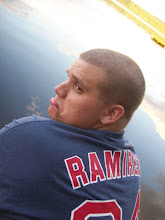Commuters are finding more competition for space on the city’s busiest streets after Mayor David Cohen unveiled Newton’s first official bike lane last month.
Over the last two years, the mayor worked with local organizations to create a bike lane on the side of Walnut Street to protect bikers and force drivers to share the road.
A white stripe extends from Beacon Street to Newton North High School.
“A dedicated lane provides an important safety measure for cyclists,” said Jeremy Solomon, the mayor’s spokesman. “Instead of trying to stay close to the curb and avoid parked cars, it provides a clear and free lane for them to use.”
Along with marking bike lanes, the city is posting “Share the Road” signs on streets with high levels of traffic.
“Our roadways are so car-centric now that they are no-man’s land for anyone not surrounded by two tons of metal,” said Steve Runge of Newton Center, who writes a blog about biking in Newton. “More bikes on the road mean more drivers getting used to making way for human beings.”

Because the new biking initiatives are partially covered by state funding, the city is only paying for the painting of the lanes, said George Kirby, the chairman of the Newton Bike and Pedestrian Task Force.
“It’s a very reasonable price for reducing congestion, lowering collision and making things safer,” he said.
Some members of the community have criticized the local government for not pursuing safety measures earlier.
“The city has done almost nothing up to this point, because it has for so long bought into the dominant belief that cars rule the road,” said Lois Levin, the leader of Bike Newton, an organization that works to make the city safer for bicyclists.
City officials said the delay was not due to a lack of concern.
“The recent changes have been in the works for some time,” Solomon said. “The mayor worked with citizen groups to locate a few streets that could safely accommodate a bicycle lane. Once safety studies had been completed, we were able to carry out their plan.”
Solomon also said creating bike lanes on many streets is not feasible.

“Implementing bicycle lanes presents a challenge because many of our roads here are fairly narrow and were not designed to have a dedicated bike lane,” he said.
Bike advocates say additional lanes will encourage residents to adopt more environmental-friendly transportation.
“All of our shopping areas, schools and libraries could be easily accessible with a bike if so many people were not scared to be out there unprotected from speeding cars,” Levin said.
Solomon said the mayor is aware that the city’s bicyclists are not satisfied and will work with them to add more lanes.
But because of economic concerns, bicycle activists do not expect new projects in the near future.
“Bike lanes are very low priority given the city’s present financial condition,” Levin said. “The situation will be getting worse, so we are going to have to be very creative to get the changes we want in the next couple of years. But we won’t stop trying.”








